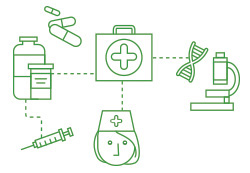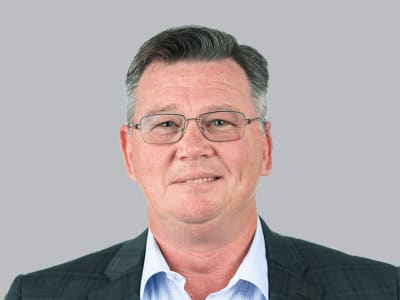Can medical centres sustain these rising costs?
Running a medical centre has always been challenging, but in recent years the sector has faced many additional hurdles.
Still reeling from the impact of a global pandemic? Throw in back-to-back interest rate rises and soaring inflation while workers demand higher wages.
The current economic downturn is placing enormous financial pressures on medical centres around Australia. This is an existential threat and the grim reality is that many of these facilities may not survive. They simply can’t afford to keep their doors open.
The cost of doing business is rising, and inflation and interest rate increases are making a bad situation worse. Already, many practices are struggling to sustain their operations. And it’s about to get worse, thanks to a combo-punch of impending wage increases and a dismal increase to Medicare schedules from 1 July 2023.
Costs are up and patient numbers are down
All medical practices struggle to some extent with finding the balance between affordability for patients and escalating expenses. It is a delicate task and particularly pertinent in the current economic climate, as the cost of living crises is already impacting patient numbers.
Out-of-pocket fees are necessary for most medical centres to remain viable. Yet these same costs make it challenging for some Australians to access the care they need. There was hope that a Medicare increase would reduce the need to pass on rising costs to patients, however, the schedule is only set to rise by 3.6% – equating to approximately $4 per patient. Far short of the amount needed to incentivise a drop in private billing.
Practice owners are also struggling with snowballing labour costs. Staff shortages have driven fierce competition across the country. As a consequence, medical centres have to pay more to attract and retain staff. New talent are asking for higher salaries, benefits, and ongoing training programs. Existing staff are also seeking pay rises to cope with the ever-increasing cost of living. And of course, Australia recently lifted the minimum wage by 5.75%, adding to the financial strain.
At the same time, practice owners have to pay more for medical supplies, with increased borrowing costs due to rising interest rates. This has made it more expensive for practices to obtain loans for upgrades, equipment purchases, or growth – capital. These things may well be essential to meet patient care needs.
Practical strategies for medical centres to prevail against increased operational costs
Despite the challenges, there are strategies that medical centres can implement to protect their future. Some of these include:
- Efficiency and cost management. Optimise resources and inventory management, reduce unnecessary expenses, streamline administrative processes and negotiate with suppliers for more favourable contracts.
- Strategic workforce planning. Develop long-term workforce plans that balance staffing needs with financial constraints. While leveraging innovative staffing models such as flexible scheduling or shared services.
- Collaborative partnerships. Share specialised equipment, develop joint purchasing agreements, and pool resources.
- Leveraging technology. Implement electronic health records, telehealth capabilities, and automated admin systems to streamline operations, increase productivity and reduce expenses.
Practice owners may need to advocate locally, statewide, or nationally to raise awareness of the challenges they face.
Healthcare is an essential service, and advocating for fair reimbursement rates or access to affordable financing options could go some way in helping to alleviate the current pressure.
Finding support in tough times
Ensuring quality care for older Australians is crucial. The Royal Commission’s findings revealed that the quality and safety of care provided to older Australians need to improve. While many aged care facilities and service providers offer excellent care, instances of neglect and mistreatment revealed in the commission indicate the need for improvement.
The commission made several recommendations to improve the quality of care, including:
- Increased staffing ratios
- Improved training and education
- Enhanced regulatory oversight
- Increased transparency
RSM’s specialist Health Services team is only a phone call away. Contact us if you need to discuss any challenges that are currently impacting your medical practice.
Our team has supported many medical centres to restructure their operations and improve their bottom line. We offer vast experience and valuable strategies that can help you turn your practice around.
We can assist you with:
- Cashflow or financial management strategies
- Scenario planning
- Comprehensive risk assessments
- Best practice benchmarking
- New technology implementation
By leveraging our industry knowledge and insights, you can overcome the array of challenges unfolding in the sector. We can help you find innovative ways to boost profitability, to ensure your practice remains financially sustainable moving forward.
FOR MORE INFORMATION
To learn more, or to book a free and confidential initial appointment, contact our National Director of Medical, Peter Nicol, at (02) 6057 3000 or your local RSM office.








